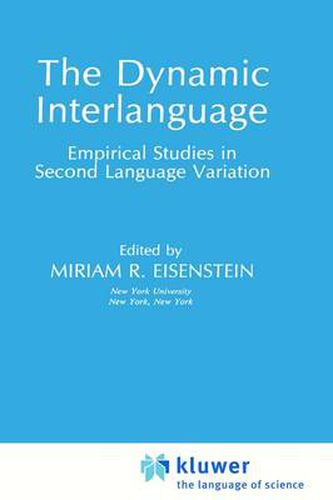Readings Newsletter
Become a Readings Member to make your shopping experience even easier.
Sign in or sign up for free!
You’re not far away from qualifying for FREE standard shipping within Australia
You’ve qualified for FREE standard shipping within Australia
The cart is loading…






This title is printed to order. This book may have been self-published. If so, we cannot guarantee the quality of the content. In the main most books will have gone through the editing process however some may not. We therefore suggest that you be aware of this before ordering this book. If in doubt check either the author or publisher’s details as we are unable to accept any returns unless they are faulty. Please contact us if you have any questions.
Recent work in applied linguistics has expanded our understanding of the rule governed nature of language. The concept of an idealized speaker -hearer whose linguistic competence is abstract and separate from reality has been enriched by the notion of an actual interlocutor who possesses communicative compe tence, a knowledge of language which accounts for its use in real-world con texts. Areas of variation previously relegated to idiosyncratic differences in performance have been found to be dynamic yet consistent and lend themselves to study and systematic description. Because language acquisition involves the development of communicative competence, by its very nature it incorporates variation and systematicity. Sec ond-language acquisition is similarly variable, since interlanguage is subject to the same universal and language-specific conventions. In addition, aspects of the second language have been found to be unevenly acquired and are differ entially reflected in particular contexts or settings. Yet, despite our expanding knowledge, this variability is only beginning to be treated in much of the sec ond-language acquisition literature. This volume presents the work of some researchers and methodologists who have taken on the challenge of including variation in their research designs and pedagogical recommendations. Variation is shown to be relevant to lin guistic, social, and psychological aspects of language. It is apparent in the registers and dialects of the target language and in the inter language of learners.
$9.00 standard shipping within Australia
FREE standard shipping within Australia for orders over $100.00
Express & International shipping calculated at checkout
This title is printed to order. This book may have been self-published. If so, we cannot guarantee the quality of the content. In the main most books will have gone through the editing process however some may not. We therefore suggest that you be aware of this before ordering this book. If in doubt check either the author or publisher’s details as we are unable to accept any returns unless they are faulty. Please contact us if you have any questions.
Recent work in applied linguistics has expanded our understanding of the rule governed nature of language. The concept of an idealized speaker -hearer whose linguistic competence is abstract and separate from reality has been enriched by the notion of an actual interlocutor who possesses communicative compe tence, a knowledge of language which accounts for its use in real-world con texts. Areas of variation previously relegated to idiosyncratic differences in performance have been found to be dynamic yet consistent and lend themselves to study and systematic description. Because language acquisition involves the development of communicative competence, by its very nature it incorporates variation and systematicity. Sec ond-language acquisition is similarly variable, since interlanguage is subject to the same universal and language-specific conventions. In addition, aspects of the second language have been found to be unevenly acquired and are differ entially reflected in particular contexts or settings. Yet, despite our expanding knowledge, this variability is only beginning to be treated in much of the sec ond-language acquisition literature. This volume presents the work of some researchers and methodologists who have taken on the challenge of including variation in their research designs and pedagogical recommendations. Variation is shown to be relevant to lin guistic, social, and psychological aspects of language. It is apparent in the registers and dialects of the target language and in the inter language of learners.